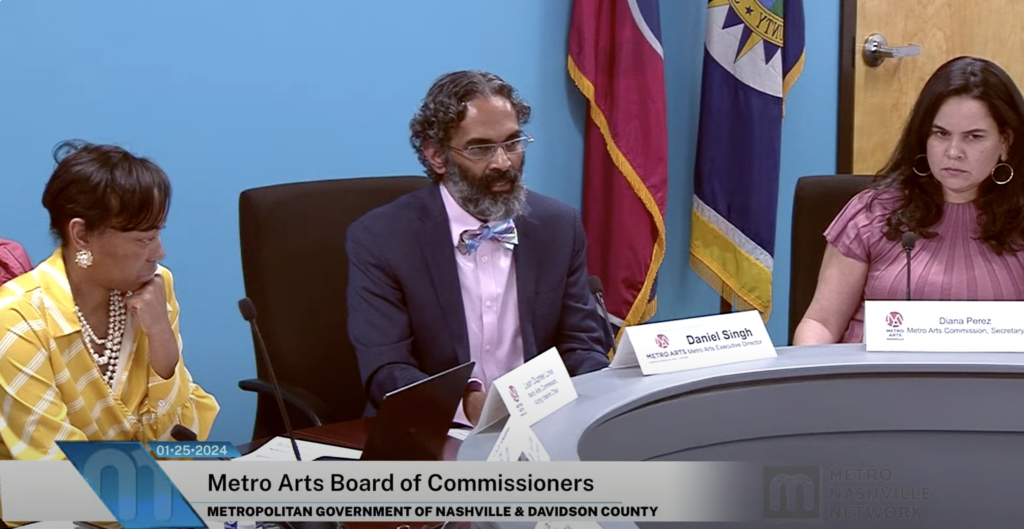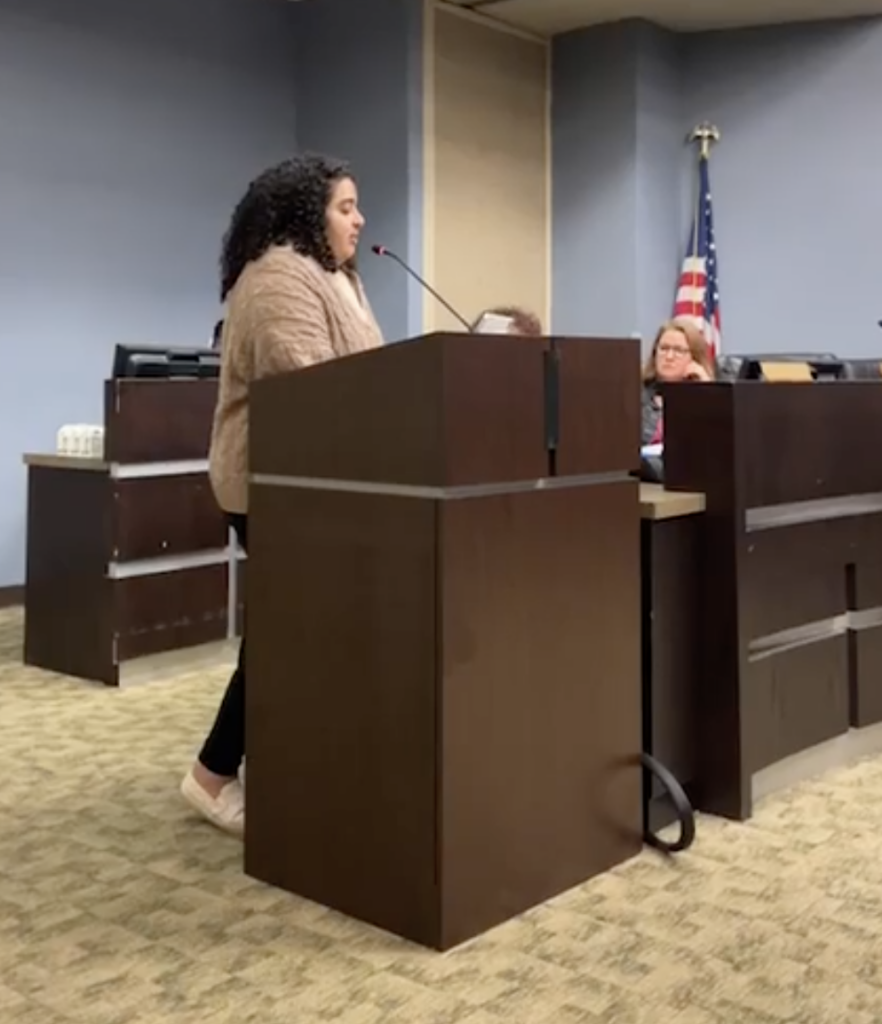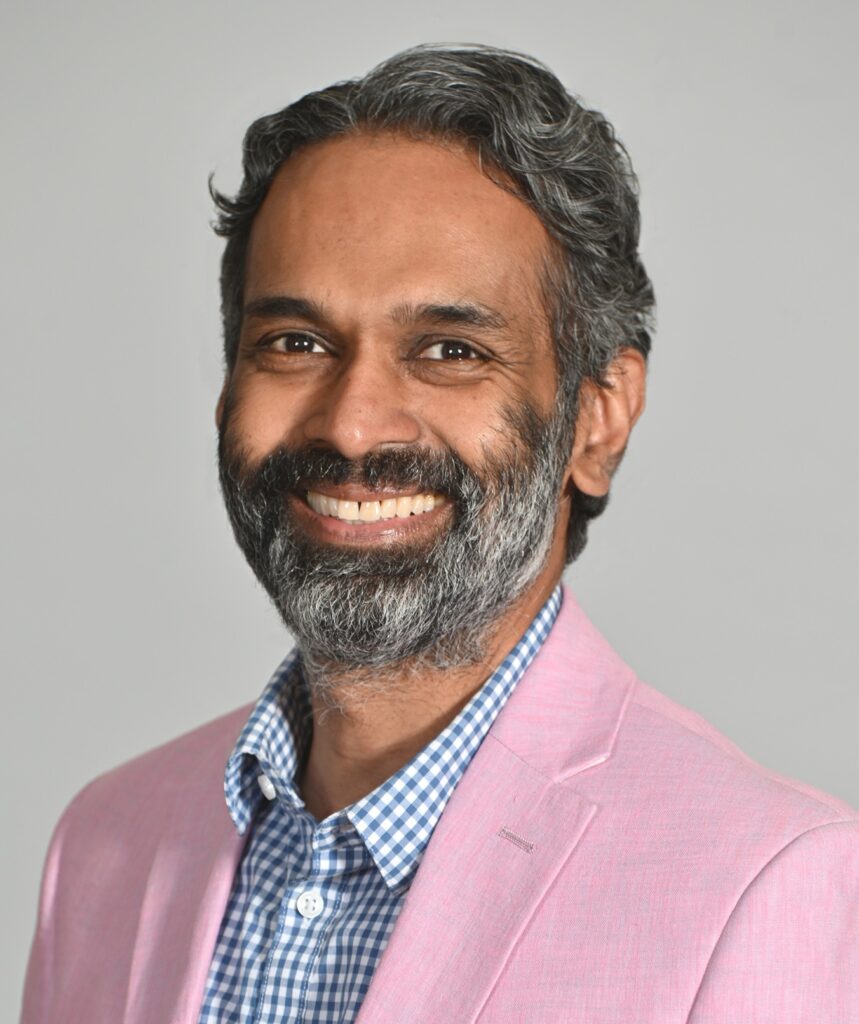
This week, artists and arts organizations throughout Nashville finished the annual application process to receive city funding from the Metro Arts Commission. But the arts community is still dealing with the consequences of last year’s chaotic funding cycle.
Arts organizations that received grants this year to support their operations have seen payments arrive months later than usual. So far, they’ve received only half of what they were promised, with no indication of when, or if, they will get the other half. At the same time, a group of independent artists and activists say the city promised them money, then redirected some of it to fund more established arts institutions at their traditional levels. The city is still investigating what happened, and the arts community is looking for answers about who’s to blame.
Funding delays force tough choices
Chatterbird Ensemble performs new, alternative chamber music in locations throughout Nashville, like this performance at the Nashville Public library featuring composer Wu Fei playing the guzheng.
“We strive to create work that is reflective of our community, meaningful to our community, that raises visibility and awareness for causes that we support,” says Celine Thackston, the group’s flute player and director.
Chatterbird receives funding each year from Metro Arts, but was one of more than 70 arts organizations affected by the funding delays. This puts the rest of their season in jeopardy.
“We don’t produce concerts unless we’re sure that we have the funds to support them,” Thackston said.
Fairness for marginalized artists
The 2023 funding cycle was supposed to be a big win for Metro Arts. After reaching out to marginalized communities and simplifying their application process, they received a historic number of submissions, especially from independent artists and organizations that had never applied before.
One of those first-time applicants was Lydia Yousief, director of the ElMahaba Center, an organization that supports Nashville’s Arabic-speaking community. She applied on behalf of artists she works with, who had exciting plans for the money.
“We have a youth arts program that is very successful. We have, Nigerian, Egyptian and Latinx, students from South Nashville who come together and we pay BIPOC artists to lead that. And we get breakfast for them and we get all art supplies completely free for them. It was also going to fund a refugee led, all women, Arabic led sewing class,” Yousief said.
Her plans also included reviving an Arabic-language newspaper and translating the work of a local novelist from Arabic to English.
 Arts Equity Nashville
Arts Equity Nashville Lydia Yousief, director of the ElMahaba Center, speaks during a Metro Human Relations Commission hearing in November 2023. Yousief and other complainants want the funding Metro Arts promised them last summer, then redirected.
Those programs, and similar independent projects, were fully funded by the Metro Arts board of commissioners last summer. Then, the commission backtracked. The reason? So many new artists applied that fully funding them meant cutting back on some of Nashville’s major arts institutions. Most commissioners wanted to fund those institutions at their traditional levels, which meant redirecting some money away from new applicants.
For Yousief, this meant the youth arts program and the sewing class couldn’t expand, and the newspaper and translation project had to be put on hold.
“I had to call artists and cancel projects and tell them, ‘I’m really sorry. Unless we are able to fundraise, we are not going to be able to work with you this year.’ And it was just super embarrassing, because these are people who have been here for years and paid their taxes,” she said.
In September, Yousief and a group called Arts Equity Nashville filed a formal complaint to the Metro Human Relations Commission, to get back the money they were promised. She says it’s about fairness for communities that have been left out of conversations about arts funding for decades.
“This is something we hear a lot from our community. Like, ‘why is there no arts programming for our kids in South Nashville in our schools, in our libraries?'” she said.
A new director
Yousief’s concerns are shared by Daniel Singh, who’s been Executive Director of Metro Arts since August 2022. Singh was hired after allegations of racist treatment toward employees led the previous director to resign. His main goals are equity and antiracism, especially when it comes to funding.
“I’m trying to look at the local activists and see what I can learn from them…They’re talking about resource redistribution with an understanding of past harms….Like the Fisk University Jubilee Singers have never been funded by Metro Arts. And to me, that’s horrifying that a wonderful musical organization of the lineage that’s almost 150 years old in Nashville hasn’t been funded by Metro Arts,” he said.
 Metro Arts Commission
Metro Arts Commission Daniel Singh has been Executive Director of Metro Arts since fall 2022. Singh has received both praise and criticism for his equity-centered approach to arts funding.
But Singh faced pushback from most of his board of commissioners, who didn’t want to destabilize Nashville’s major arts institutions. And Metro Legal told him using race to justify funding decisions was unconstitutional.
This tug-of-war between city officials is the root of both the funding revocations and the delays.
The city government is trying to sort out who’s to blame. It’s investigating the MHRC complaint from Yousief and Arts Equity Nashville, conducting an internal audit, and getting input from Metro Finance and Metro Legal. Legal director Wally Dietz thinks the root of the problem could be Singh’s inexperience with Metro government.
“There was just a lot of concern about that and whether the staff and the director fully understood the budget that they had and how to administer it,” Dietz said.
But Singh blames poor communication from other city departments.
“It is confusing. But we have been in communications with our applicants and we have worked really hard to clarify the process,” he said.
Tensions in the arts community
The arts community is divided on what to think of all this.
Some are hopeful that Singh’s equity-focused approach will make it easier for newer, less-established arts organizations.
“Up until this year of change, Metro Arts was only funding organizations after they’ve been in existence for three years, after they’ve had their IRS status for three years, which is more restrictive,” Celine Thackston of Chatterbird explained. “Especially in Nashville, which is a city that is very attuned to legacy institutions like the symphony and the opera. Philanthropy doesn’t really see much in terms of what’s new and emerging.”
But not everyone is so optimistic. One leader of a small theater nonprofit says she’s unnerved by talk of defunding big arts organizations to pay for smaller ones, since historically these groups have worked together.
“The arts are an ecosystem. You know, like one organization does partnership give space for—everybody does that. You know, there are larger organizations that have given my smaller org space and I don’t take that for granted—like, for free,” she said.
She asked to be anonymous because this topic is so divisive. Funding delays have affected her plans too.
“I have had to pause some of our school programing. I’ve had to say, ‘You know what? We’re actually not able to come in the spring,’” she said.
Fighting for more funding
Meanwhile, Singh is advocating for a solution that could make everyone happy—getting the city to spend more money on Metro Arts.
We’ve always asked for 1% of the combined city and school budget. So last year that was about $3.3 billion. If you get 1% of that, that would be about $33 million,” he said.
Last year, Nashville spent just over 5 million dollars on arts funding. $33 million would be a historic commitment. But even if that money comes through, questions will remain about how to distribute it fairly, and on time.

